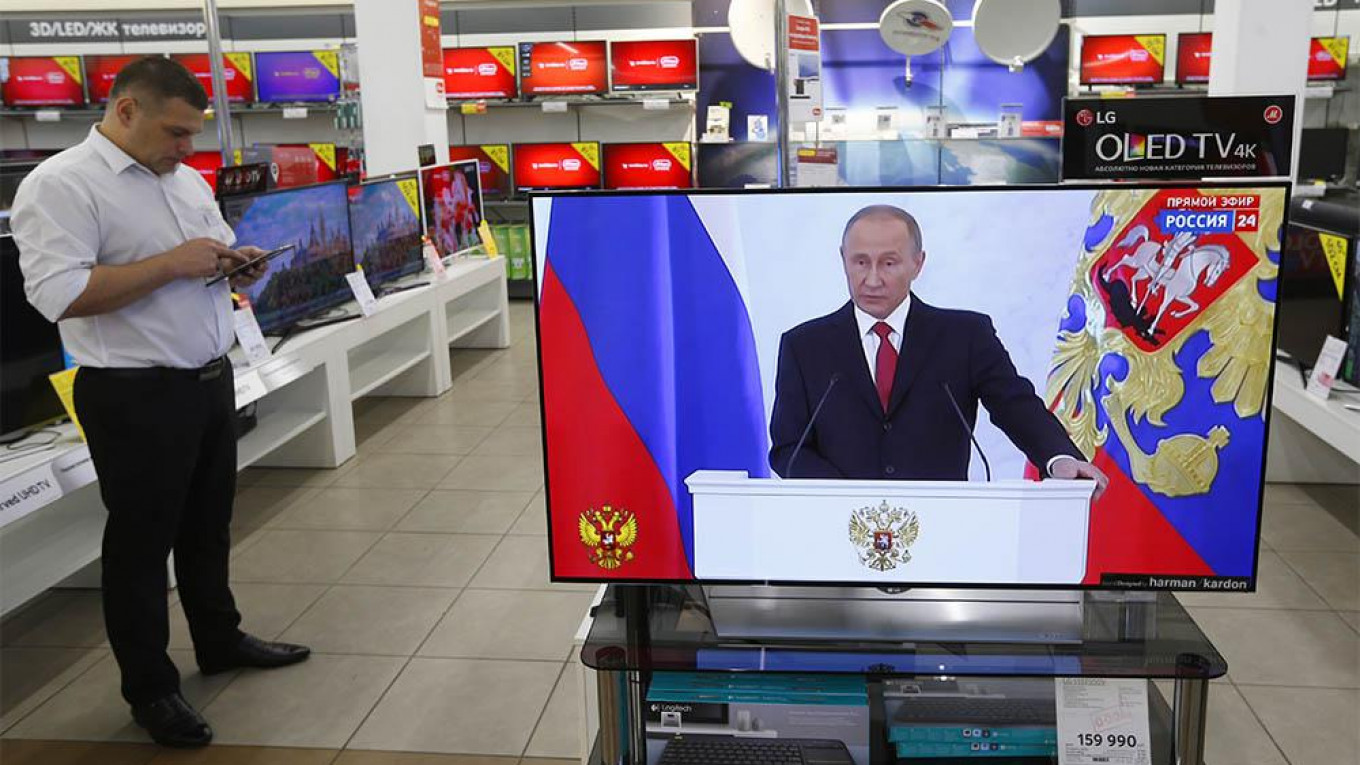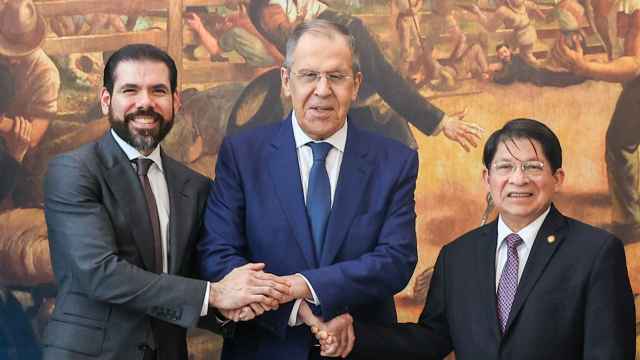The U.S. government agency that funds media in Russia has hit back after the Kremlin’s new foreign agent law was signed by President Vladimir Putin Saturday.
News networks funded by the Broadcasting Board of Governors (BBG) including Voice of America and Radio Free Europe/Radio Liberty (RFE/RL) were singled out as potential targets of the new law by Russian lawmakers during discussions in the State Duma.
The law allows prosecutors to restrict foreign-funded media outlets “whose activity is recognized as unwanted in the Russian Federation” from accessing telecommunications networks including the internet.
Russian lawmakers claimed that the new law was a reciprocal measure retaliating against the registration of Kremlin-backed media as foreign agents in the U.S. earlier this month. The head of the BBG, however, claimed that such a characterization “severely distorts reality.”
“Russian media, including RT and Sputnik, are free to operate in the United States and can be, and are, carried by U.S. cable television outlets and FM radio stations,” BBG CEO John Lansing said in a statement.
"However, U.S international media, including VOA and RFE/RL, are banned from television and radio in Russia.”
The Russian Justice Ministry earlier sent warning letters to VOA, RFE/RL, and the Current Time television network saying that they could be labeled “foreign agents” under the new law.
A Message from The Moscow Times:
Dear readers,
We are facing unprecedented challenges. Russia's Prosecutor General's Office has designated The Moscow Times as an "undesirable" organization, criminalizing our work and putting our staff at risk of prosecution. This follows our earlier unjust labeling as a "foreign agent."
These actions are direct attempts to silence independent journalism in Russia. The authorities claim our work "discredits the decisions of the Russian leadership." We see things differently: we strive to provide accurate, unbiased reporting on Russia.
We, the journalists of The Moscow Times, refuse to be silenced. But to continue our work, we need your help.
Your support, no matter how small, makes a world of difference. If you can, please support us monthly starting from just $2. It's quick to set up, and every contribution makes a significant impact.
By supporting The Moscow Times, you're defending open, independent journalism in the face of repression. Thank you for standing with us.
Remind me later.






